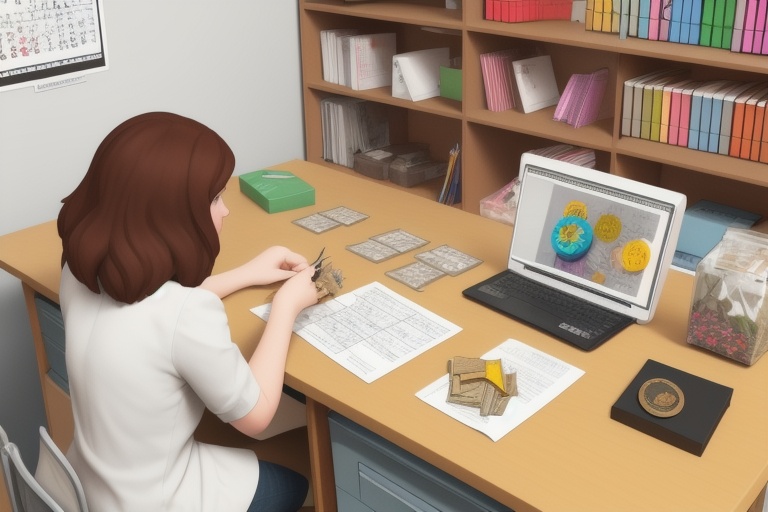As the executor of an estate, you hold the imperative duty of valuing and liquidating an array of assets, ranging from real estate and household items to jewelry and investment portfolios. Among these responsibilities, it's not unusual to encounter an assemblage of coins, especially ones accumulated during the Depression Era, a time when many Americans collected U.S. silver coinage.
As the executor of an estate, you hold the imperative duty of valuing and liquidating an array of assets, ranging from real estate and household items to jewelry and investment portfolios. Among these responsibilities, it's not unusual to encounter an assemblage of coins, especially ones accumulated during the Depression Era, a time when many Americans collected U.S. silver coinage.
The allure of such collections lies not only in their metallic composition—commonly 90% silver—but also in their historical and numismatic significance. They may comprise an array of rarities, inclusive of both circulation coins and bullion variants of gold, silver, and platinum.
Faced with the enigmatic world of numismatics, many executors find themselves at a loss, grappling with questions regarding the appraisal, organization, and sale of these estate treasures, not to mention locating a trustworthy coin dealer.
It's vital, despite the myriad of tasks demanding your attention in estate liquidation, to allocate due diligence towards the coin collection. Equipped with basic knowledge and an estimation of the coins' worth, you can secure an equitable transaction, safeguarding the estate's financial interests.
Understanding Coin Values
Every coin's value is dictated by a multitude of factors. To the uninitiated, two seemingly indistinguishable coins might boast significantly different values. Nuances such as minting year, mint mark, and condition play a pivotal role in determining a coin's worth. It is these subtleties that you must familiarize yourself with to proficiently navigate the coin's valuation.
Step One - Assess and Organize
It is crucial, before approaching any coin dealer, to gain an insight into the nature of the collection. Are these the vestiges of a seasoned collector, or was their acquisition more investment-oriented? Rare and highly coveted coins are frequently stored distinctively, often in protective albums, cases, or even graded by professional services.
One cardinal rule during this stage is the avoidance of cleaning coins, as this can degrade their condition and detract from their value. Begin by sorting coins by denomination and typology, and within each denomination, separate them further into specific types, such as Morgan or Peace silver dollars. This groundwork will streamline the selling process and contribute to a more accurate evaluation.
Identifying and Finding a Reputable Coin Dealer
Key to maximizing estate assets is partnering with an experienced and knowledgeable coin dealer. Prior to reaching out, equip yourself with sufficient information about the coins you possess.
Resources such as "The Official Blue Book: A Handbook of U.S. Coins," the "Blue Sheet" from the Coin Dealer Newsletter, our "Rare Coin Guide," and data from various online sources can offer valuable insights into coin values. However, these guides should be considered as mere references, as market demand may fluctuate and influence coin prices.
By sifting through each denomination and identifying any particularly rare or potentially valuable specimens, you can set them aside for special attention. When detailing your collection to a potential dealer, specifics regarding quantity and uniqueness can be incredibly advantageous.
An established dealer will meticulously scrutinize each piece during your appointment, pricing the rarer finds individually and respecting the integrity of those encased or album-mounted.
Evaluating Your Selling Options
When the time arrives to bid farewell to the collection, you have a bouquet of selling avenues at your disposal. If an expedited sale fits your requirements, consider a local coin dealer or shop, ensuring their credentials through avenues such as the Better Business Bureau or professional affiliations and cross-referencing quotes to secure a fair price.
Auction houses also stand as a testament to selling, particularly for substantial collections of rare coins, albeit they tailor their services to estates commonly valued north of $10,000 and claim a commission.
For the digitally inclined executor, online platforms present another viable strategy. Despite wider audience reach, selling online demands a considerable time commitment for listing, photographing, and communicating with potential buyers, with transaction fees deducting a portion of your profits.
Conclusion and Contacting Atlanta Gold & Coin Buyers
In sum, selling a coin collection is a journey of enlightenment about numismatics, recognition of valuable coins, and selecting a trustworthy coin dealer or sales channel. With a view towards obtaining the most suitable balance between price realization and sale expediency, this process guarantees catharsis for the successful executor.
Should you require assistance in this coin selling odyssey, Atlanta Gold & Coin Buyers remains at your service, prepared to dispense a gratis, non-obligatory appraisal. Visit their website, atlantagoldandcoin.com, or dial 678-922-4909 for expert guidance.
Embrace the educational aspect of this undertaking and may your selling experience not only be profitable but enlightening as well.
Information for this article was gathered from the following source.




